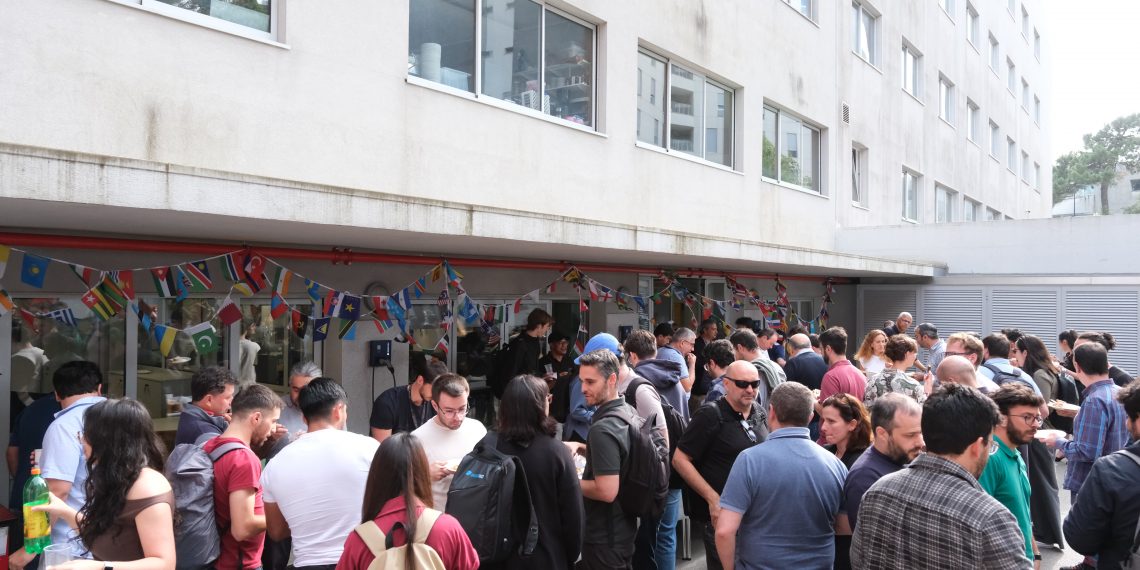At INESC TEC, multiculturalism is celebrated in many ways, with several initiatives led by groups like the Diversity and Inclusion Commission. But there are also groups of researchers who choose to combine scientific debate with a celebration of cultural diversity. Every month, researchers in the power & energy domain gather for what they call scientific or brainstorming sessions. And then? They celebrate multiculturalism in various ways; most recently, they did so through a multicultural afternoon snack break, where food took centre stage.
But let’s take it step by step. First, the science.
The afternoon began with several presentations covering different research areas: planning, reliability and resilience of power systems; operation, management and automation of power grids; active management of electricity consumption; multi-energy systems; electricity markets and regulations; integration of renewable energy and storage systems; software development for the sector. Over the course of three hours, INESC TEC power & energy researchers presented 12 topics, which led to seven discussion panels.
According to Ricardo Bessa, the domain coordinator, “it’s increasingly important to promote multidisciplinary research in the energy sector and to favour a scientific culture among younger researchers. This discussion helped us identify promising research works, like modelling and simulating a power system that’s increasingly climate-dependent; or comparing centralised vs. distributed optimisation in power systems, as well as new skills to develop, like generative AI and the mathematical foundations of electricity markets.”
Then came the multicultural celebration; this is not a new concept at INESC TEC. For several years, similar initiatives were organised, and this time, the power & energy researchers who led the initiative brought (quite literally) to the table delicacies from nearly 30 different nationalities. These included Ecuadorian ceviche, pashmak (a traditional Iranian sweet like candy floss), Italian tiramisu, and basbousa, a semolina cake soaked in syrup, traditional in the Middle East (and, in this case, representing Sudan). There were also classic Portuguese specialities like enchidos, bola de carne, and pastéis de nata – proving that food is truly a universal experience.
“As history shows, across all cultures, the dining table has always been a space for connection and understanding. Sharing a meal humanises us, bridges distances, and opens the door to dialogue,” said researcher José Pedro Sousa.
In addition to food, participants shared traditions and music, making for a lively afternoon. According to Brazilian researcher Pedro Pascoal, the multicultural event was “not only a moment of closeness, but also an opportunity to get to know our colleagues and their backgrounds better. In my opinion, these moments help to build and strengthen friendships in a light and relaxed way.”
At INESC TEC, hundreds of people from different cultural backgrounds cross paths every day. Each person brings their own story – often with few chances to share it. So why not start with food? “When we share food, we also share our culture, our history, and inevitably, parts of who we are. It’s in gatherings like this that something greater than just a workgroup begins to form; bonds are created, trust is built, and the distance between strangers decreases,” added José Pedro Sousa.
The researchers mentioned in this news piece are associated with INESC TEC.


 News, current topics, curiosities and so much more about INESC TEC and its community!
News, current topics, curiosities and so much more about INESC TEC and its community!